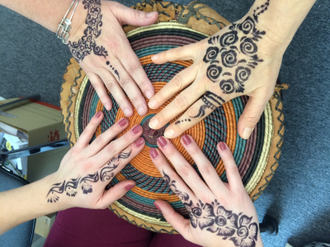Sudan's Christians: From despair to hope in 12 months

When Lord Alton and I arrived at Khartoum airport in 2004, we were met by two local Christian men. It was past midnight by the time we completed the Sudanese regime's paranoid entry formalities, emerging into the dry, stifling heat. Our new friends drove us through empty, dimly-lit streets to our hotel. There was a curfew because the city was buzzing with rumours of a coup, so our vehicle was stopped several times by agitated soldiers who waved their machine guns in our faces.
The Sudanese helping us that night were ethnic Africans living in the so-called black belt around the capital city. Hundreds of thousands of black African Sudanese fled there over the years because government forces were bombing their homes in the southern and western parts of the country.
What Lord Alton and I did not appreciate at the time was that by taking care of us, our Christian friends were doubly at risk. Both Christians and Black African Sudanese were systematically targeted by the Sudanese authorities. Their churches were destroyed, their priests arrested, they were harassed at schools and universities, and their lawyers, doctors and journalists were arrested.
The Islamist regime of President Omar Bashir fought a thirty-year campaign to impose a Muslim and Arab identity on a vastly diverse nation. Eventually, after the deaths of two million people, the southern third of the country seceded to become South Sudan in 2011. However, the persecution of the ethnically non-Arab people of Darfur continues, fifteen years later. The non-Arabs in the Nuba Mountains are also targeted by Islamist and Arab militias armed by Khartoum.
A year ago, in December 2018, the Bashir regime abruptly removed some consumer subsidies. Protests spread across Sudan, and hundreds of protesters were killed as government soldiers and proxy militias tried to suppress the uprising. Yet, people faced down overwhelming military strength, demanding an end to the corruption and human rights violations.
Where there was despair, there is now hope. However, the status of two million Christians, as well as Sudan's black Africans, is still precarious. The new ruling transitional council is split between military hard-liners and representatives of the groups that overthrew Bashir. While some are demanding that the new Sudan be secular and tolerant, the old guard Islamists are determined that Sudan will remain the world's second Islamic republic (the first being Iran). Rebel groups representing the persecuted non-Arab minorities fear that a future constitutional settlement will not protect their right to co-exist with the dominant Arab groups.
Lord Alton comments: "If ever there was a time for the international community to act to defend freedom of religious belief, it is now. The West has the leverage to make our financial support contingent on a secular constitution protecting the rights of ethnic and religious minorities."
The transitional council, headed by Prime Minister Abdallah Hamdok, is desperate for an end to sanctions: the Sudanese economy has been mismanaged for decades, and international finance is needed for infrastructure projects, schools and health care facilities. Sudan also wants to be removed from America's list of state sponsors of terror. The transitional council has thereby promised to close the offices of Hamas and Hezbollah in Khartoum, and has brought ten thousand of its fifteen thousand soldiers back from Yemen where they have been fighting as Saudi's mercenaries.
While these moves are to be welcomed, there are signs that there will be little justice for the millions who died under the Bashir regime: last week he was given a two-year sentence for financial crimes (akin to jailing Al Capone for tax evasion, according to some commentators).
Maddy Crowther from the human rights group, Waging Peace, says: "The battle cry on the streets of Sudan throughout 2019's uprising, was 'medaniya', meaning 'civil state'. This reflected the people's desire to get the military out, but also to ensure the state is secular, that sharia law is suspended, and that freedom of religion or belief is a right respected by all. The dreams of a people long repressed under an Islamist state should be realised by the transitional government, and the international community has to help them to push through needed reforms."
LINKS
Rebecca Tinsley's novel about Sudan, When the Stars Fall to Earth, is available online. See: www.amazon.co.uk/When-Stars-Fall-Earth-Africa/dp/0984512950
The Arabic translation is at: https://jamalon.com/ar/catalog/product/view/id/37291080 or www.neelwafurat.com/itempage.aspx?id=lbb330442-322166&search=books
Watch Rebecca Tinsley discussing her book: www.youtube.com/watch?v=CfS8Qc65RJs


















